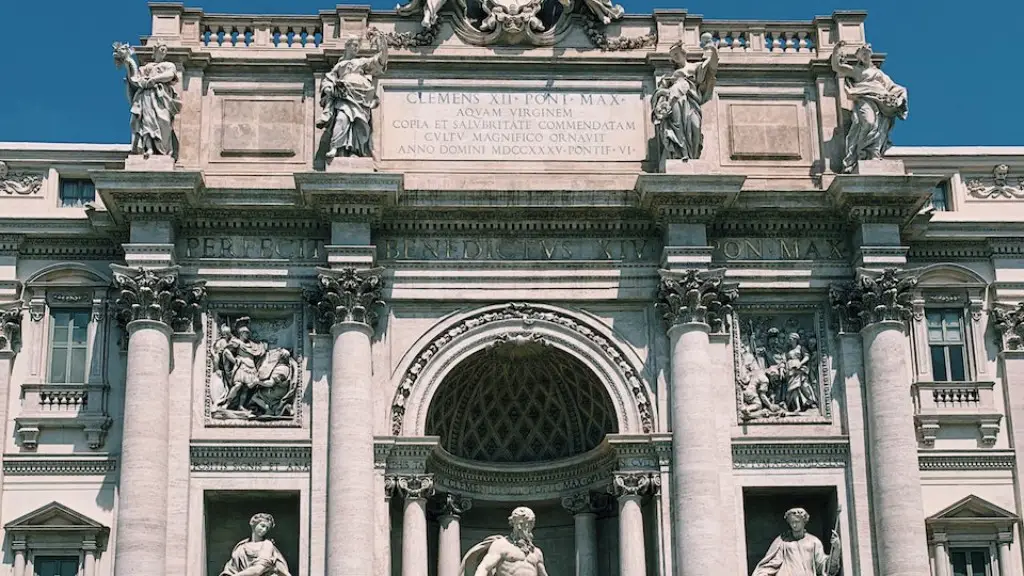Before Christianity, the Roman Empire was largely polytheistic, worshipping a pantheon of gods and goddesses who were believed to have supernatural powers over the everyday affairs of the people. This system of beliefs was an important part of Roman culture and influenced much of the Empire’s customs and traditions.
However, the rise of Christianity posed a new challenge to the traditional social and religious order of the Roman Empire. In the early 4th century AD, Emperor Constantine had a vision while marching with his army to battle, in which he believed he had seen the sign of the Christian god, Christ, in the sky.
Impressed by this vision and eager to rally the troops, Constantine declared himself an ally of the Christian god and even installed statues of Christ in the city of Rome. This was an unprecedented move that set the stage for Christianity to become the official religion of the Roman Empire.
Constantine’s pro-Christian stance eventually led to the Edict of Milan in 313 AD, a decree that officially ended the persecution of Christians and declared Christianity to be the official religion of Rome. This was followed by the Edict of Thessalonica in 380 AD which officially made Christianity the state religion. Thus, the 4th century AD marks the date when Christianity became the official religion of the Roman Empire.
Effects of Christianity on Ancient Rome
At the same time, Roman culture began to incorporate Christian symbols and social values, such as charity and compassion, as prominent parts of its society. This was a radical transformation as Roman social structure had been built upon a system of power and authority.
Moreover, Christianity transformed the political culture of the Roman Empire as well. While the traditional Roman government was based upon military might, the adoption of Christianity helped to establish a more peaceful and cooperative manner of governing.
The spread of Christianity also had an important impact on the literature and arts of ancient Rome. Christian values and symbols began to appear in works of literature, and religious themes began to infiltrate art and architecture as well.
Positive Reception of Christianity
This view was shared by both the general population and the elites of the Roman Empire. Many powerful members of the Roman government were highly supportive of Christianity and were instrumental in spreading it throughout the empire.
Even Emperor Constantine, who had initially embraced Christianity for a political purpose, eventually came to genuinely believe in the Christian faith. He went on to become a leading champion of Christianity and was a major contributor to the development of the religion.
Expansion of Christianity
Furthermore, Christian missionaries flooded the region, teaching the doctrines and values of the religion to the masses. These missionaries, as well as prominent Christian scholars, helped to spread the gospel and popularize Christianity throughout the Roman Empire.
Decline and Legacy of Christianity in Ancient Rome
Despite the decline of Christianity in ancient Rome, its legacy and influence can still be felt in the modern world. Christianity and its associated beliefs and traditions have permeated Western culture in a profound way, becoming an integral part of our society.
The teachings of Jesus, such as the importance of love, charity, and patience, are still echoed in our society today. Likewise, countless political and social movements, such as the civil rights movement, were inspired by the teachings of Christianity and helped to shape the history of our world.
Rome’s Influence on Christianity
Much of the structure and doctrines of the Roman Catholic Church were formed by the Roman Empire and its prominent figures, such as Emperor Constantine and Pope Leo I. The Catholic Church also adopted Roman law, institutions and legal codes, giving the Church a great degree of power and influence.
The spread of Christianity throughout the Roman Empire also gave rise to the development of new branches of the faith. For example, the Eastern Orthodox Church and Protestantism both trace their origins back to the Protestant Reformation, which was greatly influenced by the Roman Empire’s embrace of Christianity.
Advancement of Christianity in Modern Society
Furthermore, Christianity has also had a profound impact on education and art. Many of the world’s greatest works of literature, art, and music were created by Christians and reflect the beliefs of Christianity.
Finally, the impact of Christianity can be seen in the rise of the modern-day welfare state. Christianity emphasizes charity and compassion, which has been reflected in governmental policies aiming to foster economic justice and reduce inequality.
